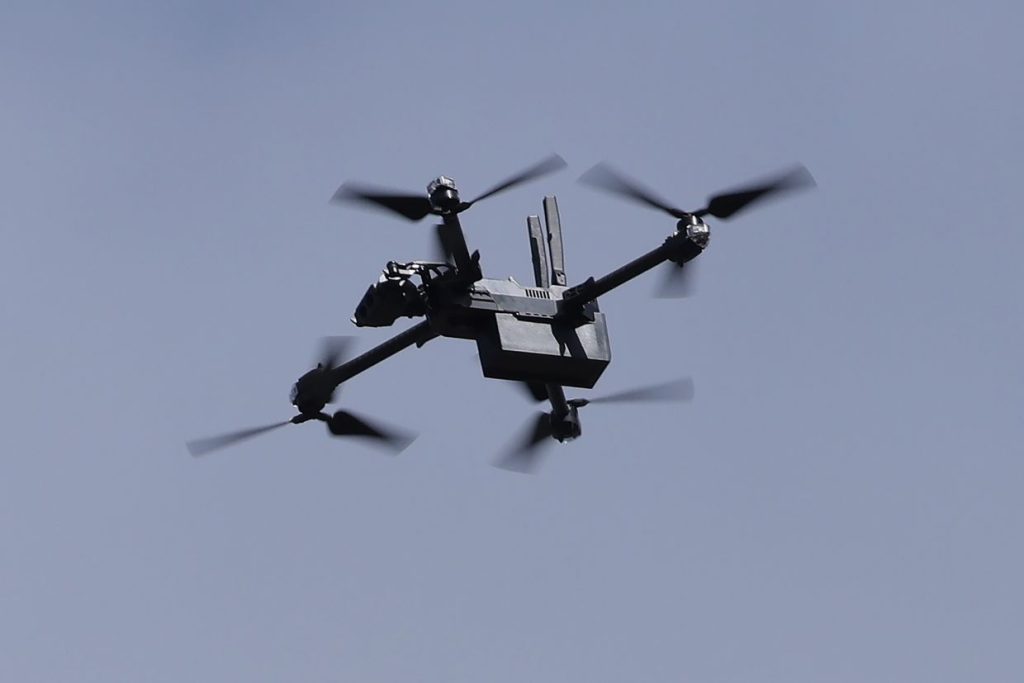Germany, the Netherlands, Canada, and other countries have agreed to supply Ukraine with drones to bolster its arsenal. The drone coalition, co-led by the United Kingdom and Latvia, was established in January to support Ukraine. Germany plans to provide Vector 211 reconnaissance drones, while Canada will send 450 SkyRanger multi-mission drones. The Netherlands, in collaboration with Denmark and Germany, will supply Ukraine with Heidrun RQ-35 reconnaissance drones. Additionally, Lithuania will allocate funds for the production of first-person view (FPV) drones in Ukraine. This support is crucial for Ukraine as it faces ongoing attacks on civilian facilities, requiring immediate action to counter these threats. The drone coalition is open to new members joining and contributing to this initiative to further strengthen Ukraine’s defense capabilities.
During a meeting among the representatives of the countries involved in the drone coalition, Deputy Defense Minister Kateryna Chernohorenko emphasized the urgent need for tools to respond to attacks on civilian infrastructure. She highlighted the dynamic situation on the front line and the continued aggression from the enemy, underscoring the necessity for swift decisions and actions. The support from the drone coalition, including drones from Germany, Canada, the Netherlands, Lithuania, and other countries, will enhance Ukraine’s capacity to address security challenges effectively. The coalition is actively seeking additional members to join and provide further assistance to Ukraine in its defense efforts.
Latvian Defense Minister Andris Spruds expressed the coalition’s readiness to welcome new members and expand support for Ukraine through the provision of drones and defense aid packages. Latvia, along with other coalition members, is committed to aiding Ukraine in enhancing its defense capabilities to counter threats posed by the ongoing conflicts. The support from Latvia, Germany, Canada, the Netherlands, and other participating countries demonstrates a united front in standing with Ukraine and ensuring its security and stability in the face of external threats. The collaborative efforts of the drone coalition aim to strengthen Ukraine’s defense infrastructure and empower its military forces to effectively respond to emerging security challenges.
In addition to the international support from the drone coalition, Ukrainian soldiers are already utilizing domestically-produced attack drones similar to Russian Lancet drones at the front lines. Ukrainian news outlets reported that Ukrainian forces have integrated these drones into their operations, showcasing the country’s innovation and self-reliance in developing defense technologies. The utilization of domestically-produced drones, along with the support from the drone coalition, enhances Ukraine’s ability to defend its sovereignty and protect its citizens from external aggression. The combination of international assistance and domestic innovation underscores Ukraine’s determination to secure its borders and uphold its territorial integrity in the midst of ongoing conflicts.
The collaboration between Ukraine and the countries supporting the drone coalition reflects a shared commitment to upholding international security and supporting Ukraine in its defense efforts. The provision of drones, including reconnaissance and multi-mission drones, from Germany, Canada, the Netherlands, and other coalition members, signifies a strategic partnership aimed at enhancing Ukraine’s defense capabilities. The allocation of funds for FPV drone production in Ukraine further contributes to strengthening the country’s defense infrastructure and capabilities. The drone coalition’s efforts to expand its membership and support Ukraine through defense aid packages underscore the importance of collective security and solidarity in addressing security challenges in the region. The continued support from international partners and the utilization of domestic defense technologies position Ukraine to effectively respond to external threats and safeguard its sovereignty.















